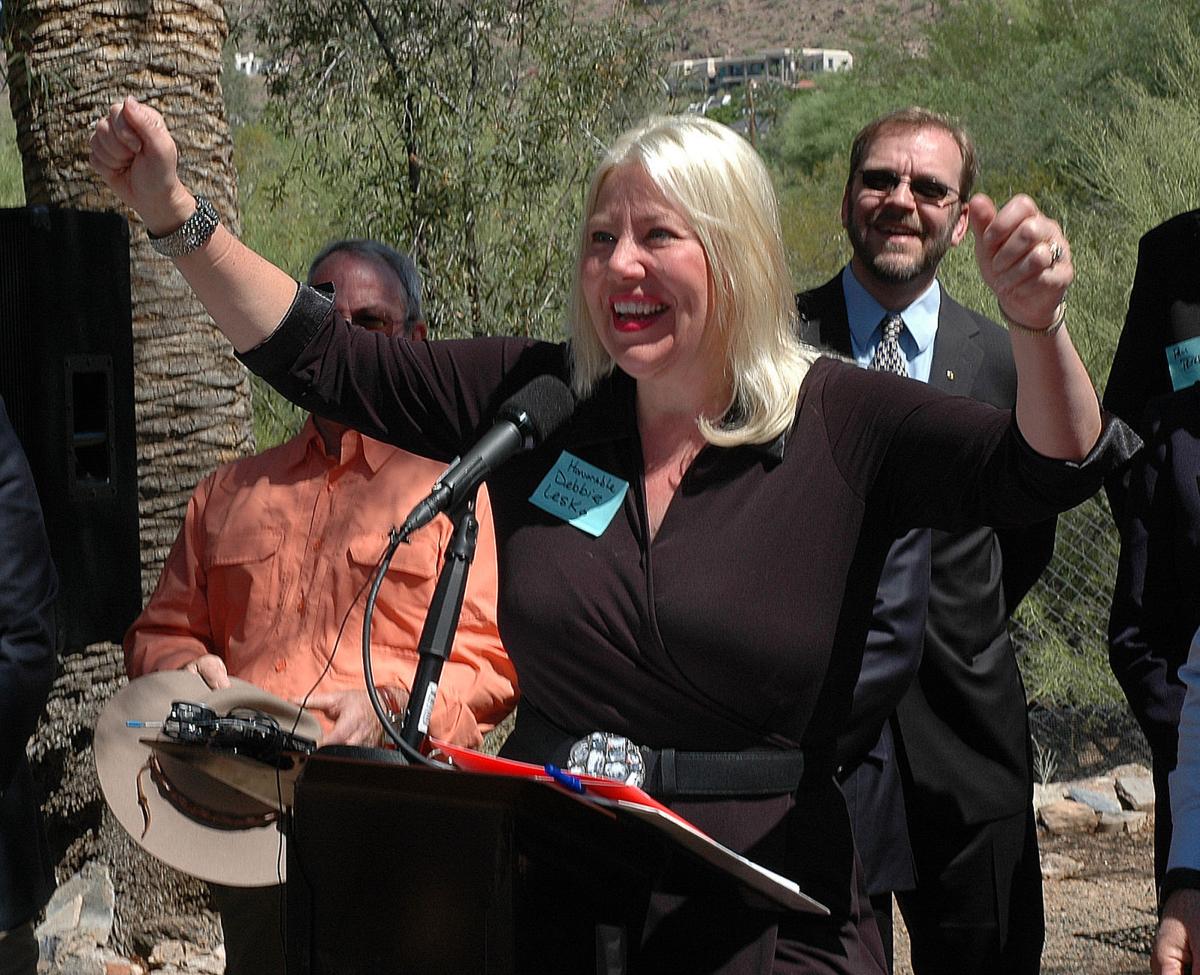PHOENIX — Arizona voters may get the last word on making vouchers available to all students.
A group of parents is hoping to gather 75,321 valid signatures on petitions by early August to counter legislation approved by lawmakers and signed by Gov. Doug Ducey. If they succeed, the law cannot take effect until voters get a chance to ratify or reject the measure at the November general election.
The effort annoyed Sen. Debbie Lesko, R-Peoria, who championed the expansion legislation under the banner of promoting more choice for families.
“What are these people afraid of?” she asked. “If their schools do a good job, their parents will choose their school.”
But Dawn Penich-Thacker, one of the organizers of the referendum, said that’s missing the point.
“If our public schools were funded and our teachers were well paid and our classrooms had the supplies that they need, then great, give vouchers to everybody,” she said.
“But that’s not where we are in Arizona,” Penich-Thacker continued. “Not even close. We are at the bottom of the barrel.”
About 5,500 children now use the vouchers, which are worth about $5,600 a year, though students with disabilities can get more.
The new law would make all 1.1 million students in public schools eligible, regardless of background, though the base amount is reduced to $4,400 and it includes a permanent cap of about 30,000 students.
Penich-Thacker said Arizona already has a lot of options for parents, including an extensive system of charter schools. These are public schools that can be run by private organizations but who cannot charge tuition beyond what the state provides.
In fact, she said she sends her two children to charter schools.
Arizona has had vouchers since 2011. Originally earmarked for children with special needs, lawmakers have slowly expanded eligibility to the point where it now includes foster children, reservation residents and students attending schools rated D or F.
Penich-Thacker said the problem is that dollars given to parents to pay for private and parochial schools means less money for what she said is an underfunded public school system.
“We’re 48th in the country for public funding and school achievement,” she said.
“We are dead last in the nation for teacher pay,” Penich-Thacker continued. That last statistic may be inaccurate: Figures from the National Education Association show at least one state with lower average pay.
But whatever the ranking, Penich-Thacker figures it would take an 11 percent pay hike to get teacher pay up to the national average; the new budget includes 1 percent this year and an additional percent next year from state dollars, plus whatever local districts can afford.
The result, she said, is 2,200 classrooms across the state being taught by someone other than a permanent teacher.
Lesko said it’s wrong to assume that money given for vouchers — formally known as “empowerment scholarship accounts” — means public schools are being shortchanged.
“We can support public schools as we have done in this budget where we increased funding significantly and gave teacher raises,” she said.
“But we can also provide another school choice to our parents,” Lesko continued. “And that’s what I’m for.”
Penich-Thacker said the flaw in what Lesko is saying is that there is not a level playing field between public and private schools, with vouchers siphoning needed dollars away from neighborhood schools.
She said she and the other parents met when they came to the Capitol to testify against the voucher bill. She said they stayed in contact since Ducey signed the measure and concluded they were not ready to drop the battle.
There’s a potential risk if the referendum is successful: If the voucher expansion is repealed, so is that 30,000 permanent cap.
On Twitter: @azcapmedia





